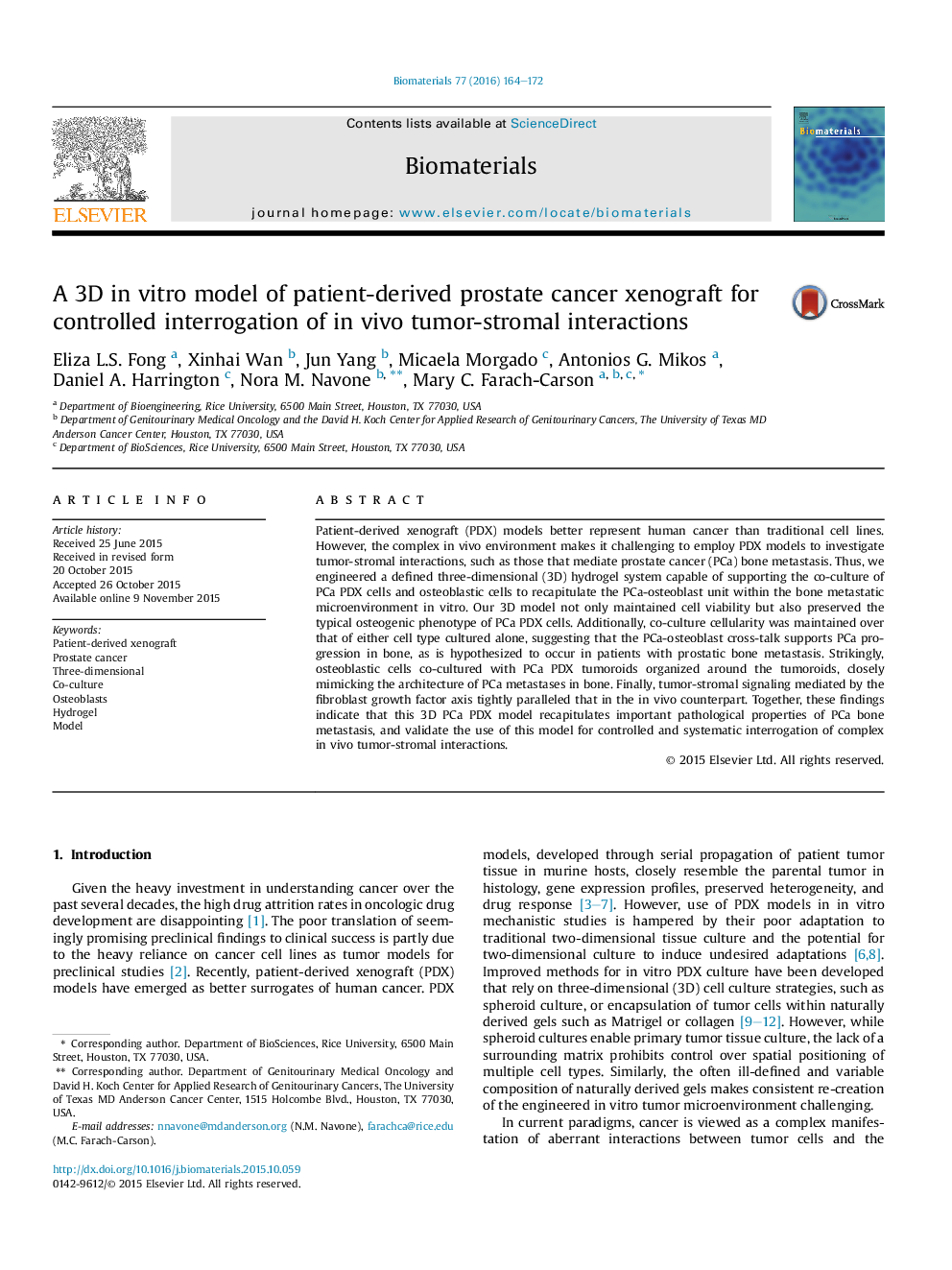| Article ID | Journal | Published Year | Pages | File Type |
|---|---|---|---|---|
| 6485257 | Biomaterials | 2016 | 9 Pages |
Abstract
Patient-derived xenograft (PDX) models better represent human cancer than traditional cell lines. However, the complex in vivo environment makes it challenging to employ PDX models to investigate tumor-stromal interactions, such as those that mediate prostate cancer (PCa) bone metastasis. Thus, we engineered a defined three-dimensional (3D) hydrogel system capable of supporting the co-culture of PCa PDX cells and osteoblastic cells to recapitulate the PCa-osteoblast unit within the bone metastatic microenvironment in vitro. Our 3D model not only maintained cell viability but also preserved the typical osteogenic phenotype of PCa PDX cells. Additionally, co-culture cellularity was maintained over that of either cell type cultured alone, suggesting that the PCa-osteoblast cross-talk supports PCa progression in bone, as is hypothesized to occur in patients with prostatic bone metastasis. Strikingly, osteoblastic cells co-cultured with PCa PDX tumoroids organized around the tumoroids, closely mimicking the architecture of PCa metastases in bone. Finally, tumor-stromal signaling mediated by the fibroblast growth factor axis tightly paralleled that in the in vivo counterpart. Together, these findings indicate that this 3D PCa PDX model recapitulates important pathological properties of PCa bone metastasis, and validate the use of this model for controlled and systematic interrogation of complex in vivo tumor-stromal interactions.
Keywords
Related Topics
Physical Sciences and Engineering
Chemical Engineering
Bioengineering
Authors
Eliza L.S. Fong, Xinhai Wan, Jun Yang, Micaela Morgado, Antonios G. Mikos, Daniel A. Harrington, Nora M. Navone, Mary C. Farach-Carson,
